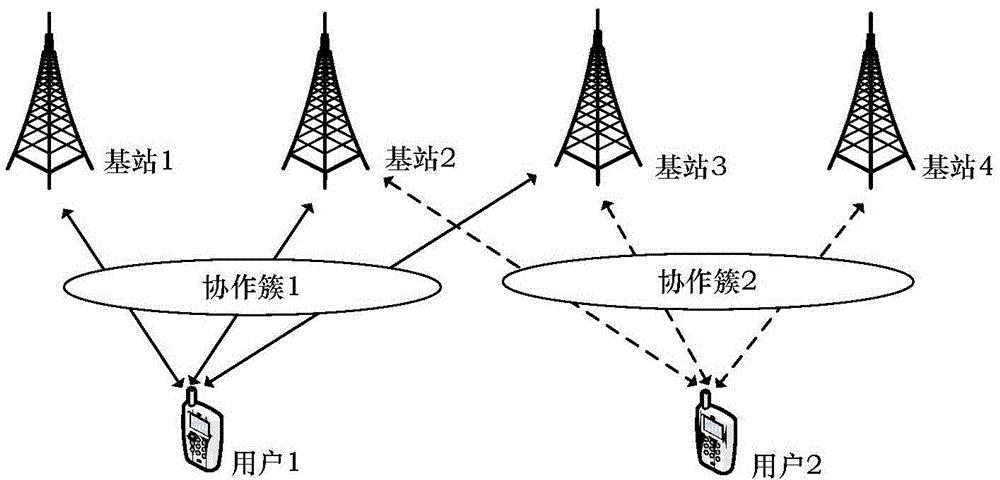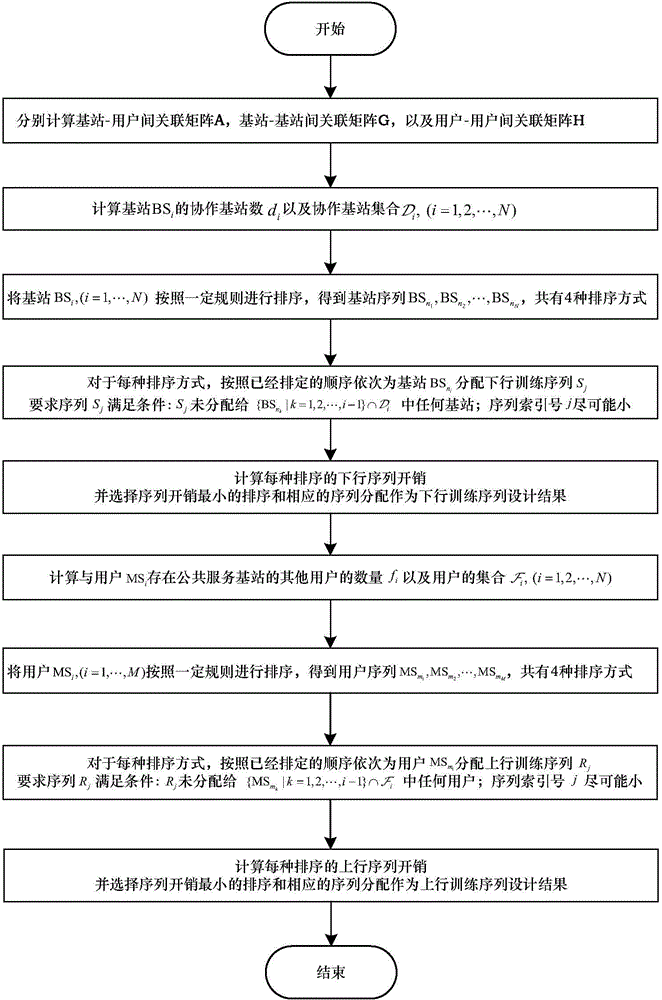Training sequence design method in multi-base-station cooperative system with users as centers
A training sequence and collaborative system technology, applied in baseband system components, transmission systems, digital transmission systems, etc., can solve the problem of a large number of training sequences
- Summary
- Abstract
- Description
- Claims
- Application Information
AI Technical Summary
Problems solved by technology
Method used
Image
Examples
Embodiment Construction
[0051] The present invention proposes a training sequence design method in a user-centered multi-base station cooperative system. The present invention will be described in detail below with reference to specific embodiments and accompanying drawings. The flow chart is as follows: figure 2 shown.
[0052] The system in the embodiment includes 7 single-antenna base stations 7 single antenna users {MS 1 , MS 2 ,...,MS 7}, the clustering of the system has been completed, for each user MS k ,(k=1,2,…7), the set of base stations in its specific cooperative cluster respectively Applying the design method of the training sequence proposed by the present invention includes the following steps:
[0053] Step 1: Calculate the base station-user association matrix A, the base station-base station association matrix G, and the user-user association matrix H according to the clustering result of the system.
[0054] (1) The base station-user correlation matrix A is a 7×7 dimens...
PUM
 Login to View More
Login to View More Abstract
Description
Claims
Application Information
 Login to View More
Login to View More - R&D
- Intellectual Property
- Life Sciences
- Materials
- Tech Scout
- Unparalleled Data Quality
- Higher Quality Content
- 60% Fewer Hallucinations
Browse by: Latest US Patents, China's latest patents, Technical Efficacy Thesaurus, Application Domain, Technology Topic, Popular Technical Reports.
© 2025 PatSnap. All rights reserved.Legal|Privacy policy|Modern Slavery Act Transparency Statement|Sitemap|About US| Contact US: help@patsnap.com



